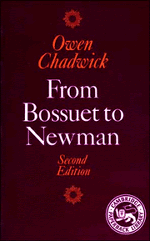II - LOGICAL EXPLANATION
Published online by Cambridge University Press: 04 April 2011
Summary
From the vigorous, warm, gusty oratory of the Gallican apologists, we pass into a thinner and cooler and quieter atmosphere, that of the Spanish lecture-room. In the universities and religious houses of Valladolid, Salamanca, Alcalá, Coimbra, Saragossa, the problem could be debated on its merits as a theological problem, unhampered by the needs of Protestant controversy. Representatives of a tradition of inquiry, of teaching, of exposition reaching steadily back for full 500 years, the heirs of the schoolmen were continuing their rigorous and unimpassioned investigations.
The American wealth of Spain had enabled adequate professorial endowments and new collegiate foundations like Alcalá to stimulate theological inquiry. Through the sixteenth century, in dogmatics, exegetics, mystical and ascetical thought, casuistry, canon law, Spanish theologians were steadily extending their analytical range, their patristic and philosophical equipment, their speculative power. The political influence of Spain carried the prestige of their thought to Rome, north Italy, the Netherlands, to Ingolstadt and southern Germany. Though the Nominalist and Scotist traditions continued in particular chairs (it was said that ‘Spain gave sanctuary to the theology of Paris’) the University of Salamanca had initiated a renaissance of Thomism, a philosophy which was canonized and disseminated when the Dominican Pope Pius V elevated St Thomas Aquinas among the doctors of the Church. The Summa was being substituted for the Sentences of Peter Lombard as the matter for academic comment.
Information
- Type
- Chapter
- Information
- From Bossuet to Newman , pp. 21 - 48Publisher: Cambridge University PressPrint publication year: 1987
Accessibility standard: Unknown
Why this information is here
This section outlines the accessibility features of this content - including support for screen readers, full keyboard navigation and high-contrast display options. This may not be relevant for you.Accessibility Information
- 1
- Cited by
